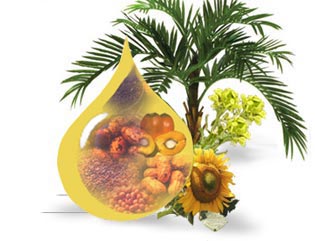- Choose professional Small Sunflower Seed Oil Refinery Line
- Professionally Designed Mini Oil Mill for Home Use
- Is Small Oil Production Line Worth for Investment?
- How to Build Small Edible Oil Production Line?
- Small Oil Mill Plant for Daily Requirement
- Small Edible Oil Refinery Plant Cost Can Be Reduced Relatively
- How to Extract Palm Oil from Palm Fruit-Oil Mill Plant
- start oil extraction factory
Palm Oil Plant
Palm oil is a common cooking ingredient in the tropical belt of Africa, Southeast Asia and parts of Brazil. Its increasing use in the commercial food industry in other parts of the world is buoyed by its lower cost and the high oxidative stability (saturation) of the refined product when used for frying.
Palm Oil Plant Production Process

Conversion of crude palm oil to refined oil involves removal of the products of hydrolysis and oxidation, colour and flavour. After refining, the oil may be separated (fractionated) into liquid and solid phases by thermo-mechanical means (controlled cooling, crystallization, and filtering), and the liquid fraction (olein) is used extensively as a liquid cooking oil in tropical climates, competing successfully with the more expensive groundnut, corn, and sunflower oils.
Extraction of oil from the palm kernels is generally separate from palm oil extraction, and will often be carried out in mills like other oilseed processing(such as groundnuts, rapeseed, cottonseed, shea nuts or copra). The stages in this process comprise grinding the kernels into small particles, heating (cooking), and extracting the oil using an oilseed expeller or petroleum-derived solvent. The oil then requires clarification in a filter press or by sedimentation. Extraction is a well-established industry, with large numbers of international manufacturers able to offer equipment that can process from 10 kg to several tonnes per hour.
General speaking, the refining routes of palm oil is quite identical. There are two routes are taken to process crude oil into refined oil; which are chemical (basic) refining and physical refining. The methods differ basically in the way the fatty acids are removed from the oil. Physical refining, which eliminates the need for an effluent plant for the soap stock, involves subjecting the oil to steam distillation under higher temperature and vacuum for removal of the free fatty acids. The physical refining is used to remove the free fatty acids. The refining of physical plant is practiced to subject the oil to steam distillation.

 Français
Français Русский
Русский Español
Español